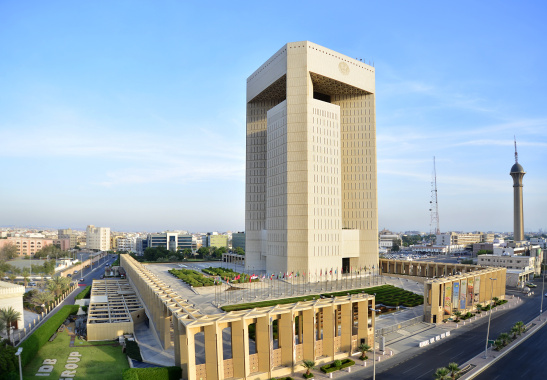As the impact of the COVID-19 pandemic affects ACBF’s ability to function at full capacity, the Islamic Development Bank (IsDB) and the Arab Bank for Economic Development in Africa (BADEA) have reiterated their determination to work with the African Capacity building Foundation (ACBF) to accompany African countries in the fight against the Coronavirus pandemic and its aftermath.
The commitment to support African countries which are member states and beneficiaries of both banks was communicated during the ACBF’s virtual High-Level Brainstorming Session. At least half of African countries are reportedly members of the IsDB.
Senior Regional Coordinator of Technical Cooperation in Africa, Mr. Sameh HUSSEIN said the Bank had set aside $2.3 billion to be given as concessionary loans to member countries, to fight the COVID-19 pandemic. The Bank also intends to partner with stakeholders that include the ACBF in three action areas: capacity development and networking of African laboratories, production of peer reviewed protocols and sharing of practical experiences.
“The IsDB has organized online training on preparedness and response to the pandemic for 5,000 African health workers (covering testing, contact tracing, and patient management). The Bank will continue the training program for the next several months and it is relying on ACBF’s expertise in delivering these trainings,” said. Mr. Hussein.
On the other hand, Dr. Tshepelayi KABATA, Technical Advisor in the Office of the Director-General of BADEA, said the Bank had acted swiftly to set up a $100 million Emergency Fund for African countries to fight the health crisis and its economic fall-out. BADEA committed to continue working with ACBF to assist countries to develop strong proposals for “bankable projects” to be funded during and after the pandemic.
“We have seen many countries struggling to prepare their responses for both the health and economic crises. Some think it is business as usual and have thus neglected the health aspect while pursuing the economic dimension. Nevertheless, we know that economic recovery will not happen until we solve the health problem. In that respect, ACBF can play a key role now and in the future,” Dr. Kabata said.
He said the Bank would finance four key priorities, being; projects from the public sector, such as infrastructure; projects from the private sector, including trade financing and projects from the agricultural sector, most specifically agricultural value chains, as well as SMEs.
The two Banks communicated their confidence in the ACBF to play a key role in enabling countries to produce strong proposals and projects that can help their SMEs recover from the crisis.
Prof. Emmanuel NNADOZIE, ACBF’s Executive Secretary thanked the Banks, pledging ACBF’s readiness to play its role in the highlighted areas. “Let me assure you that the partnership will get even stronger now that there is an emergency situation,” the Executive Secretary said.



